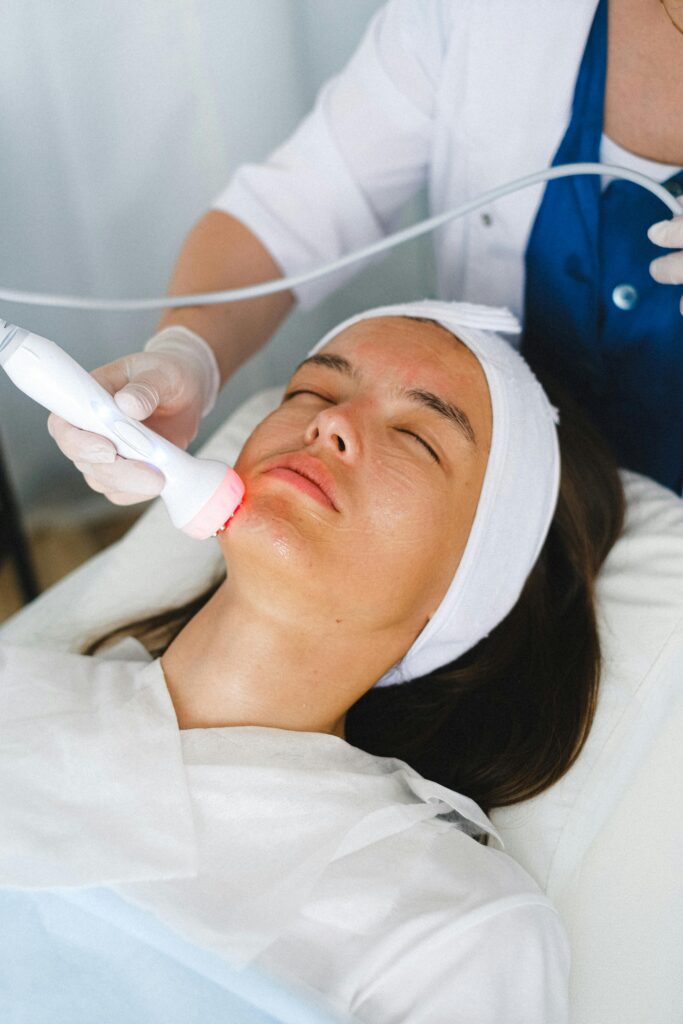Introduction
Skin is the largest organ of the human body and serves as the first line of defense against environmental hazards. Maintaining healthy skin is essential not only for appearance but also for overall health. Skin diseases can range from mild conditions like acne to severe issues such as melanoma. Understanding how to care for your skin and prevent skin diseases is crucial for long-term health and well-being. This article explores various steps to maintain healthy skin, common skin diseases, and preventive measures to reduce the risk of developing skin-related problems.
Importance of Skin Health
Healthy skin plays several important roles in the body:
- Protection
- Acts as a barrier against pathogens, harmful chemicals, and physical injuries.
- Protects internal organs from environmental damage.

- Regulation
- Helps regulate body temperature through sweat and blood flow.
- Maintains fluid balance and prevents dehydration.
- Sensation
- Contains sensory receptors that enable the perception of touch, temperature, and pain.
- Vitamin D Production
- Synthesizes vitamin D when exposed to sunlight, which is crucial for bone health and immune function.
Common Skin Diseases
Understanding common skin diseases helps in recognizing symptoms and seeking appropriate treatment.
- Acne
- Characterized by pimples, blackheads, and whiteheads, primarily affecting the face, chest, and back.
- Caused by clogged hair follicles due to excess oil, bacteria, and dead skin cells.
- Eczema
- A chronic condition that causes red, itchy, and inflamed skin.
- Often linked to genetic factors and immune system dysfunction.
- Psoriasis
- An autoimmune disease that accelerates skin cell turnover, leading to thick, red patches covered with silvery scales.
- Commonly affects the scalp, elbows, knees, and lower back.
- Dermatitis
- Inflammation of the skin caused by irritants, allergens, or infections.
- Includes contact dermatitis, seborrheic dermatitis, and atopic dermatitis.
- Skin Cancer
- Includes melanoma, basal cell carcinoma, and squamous cell carcinoma.
- Caused by uncontrolled growth of abnormal skin cells, often due to excessive UV exposure.
Steps to Maintain Healthy Skin
Maintaining healthy skin involves a combination of proper skincare, a healthy lifestyle, and preventive measures.
Daily Skincare Routine
- Cleansing
- Use a gentle cleanser to remove dirt, oil, and impurities without stripping the skin of its natural oils.
- Cleanse twice daily, in the morning and before bed.
- Exfoliation
- Exfoliate 1-2 times a week to remove dead skin cells and promote cell turnover.
- Choose exfoliants suitable for your skin type (e.g., chemical exfoliants for sensitive skin, physical exfoliants for oily skin).
- Moisturizing
- Apply a moisturizer suited to your skin type to maintain hydration and strengthen the skin barrier.
- Use a heavier moisturizer at night to support skin repair during sleep.
- Sun Protection
- Apply broad-spectrum sunscreen with at least SPF 30 daily, even on cloudy days.
- Reapply every two hours when outdoors and after swimming or sweating.
Healthy Lifestyle Habits
- Balanced Diet
- Consume a diet rich in fruits, vegetables, whole grains, lean proteins, and healthy fats.
- Include foods high in antioxidants, vitamins (A, C, E), and omega-3 fatty acids to support skin health.
- Hydration
- Drink plenty of water throughout the day to keep the skin hydrated and flush out toxins.
- Limit intake of caffeine and alcohol, which can dehydrate the skin.
- Regular Exercise
- Engage in regular physical activity to improve blood circulation and promote healthy skin.
- Exercise helps deliver oxygen and nutrients to skin cells and supports the removal of waste products.
- Adequate Sleep
- Aim for 7-9 hours of quality sleep each night to allow the skin to repair and regenerate.
- Practice good sleep hygiene by maintaining a consistent sleep schedule and creating a restful environment.
Preventive Measures
- Avoid Excessive Sun Exposure
- Seek shade and wear protective clothing, hats, and sunglasses when outdoors.
- Avoid tanning beds and minimize exposure to direct sunlight during peak hours (10 AM to 4 PM).
- Avoid Smoking
- Smoking accelerates skin aging, reduces blood flow, and depletes essential nutrients needed for healthy skin.
- Quitting smoking improves skin health and reduces the risk of skin diseases.
- Manage Stress
- Chronic stress can exacerbate skin conditions like acne, eczema, and psoriasis.
- Practice stress-reducing techniques such as mindfulness, meditation, yoga, and deep breathing exercises.
- Limit Exposure to Irritants
- Identify and avoid known skin irritants and allergens, such as harsh chemicals, synthetic fragrances, and certain fabrics.
- Use hypoallergenic and fragrance-free skincare products.
- Regular Skin Check-Ups
- Perform regular self-examinations to check for new or changing moles, spots, or lesions.
- Schedule annual skin examinations with a dermatologist, especially if you have a history of skin cancer or other risk factors.
Managing Skin Diseases
If you develop a skin disease, proper management and treatment are essential to control symptoms and prevent complications.
Acne Management
- Topical Treatments
- Use over-the-counter products containing benzoyl peroxide, salicylic acid, or alpha hydroxy acids.
- Prescription topical treatments may include retinoids or antibiotics.
- Oral Medications
- For moderate to severe acne, oral antibiotics, hormonal treatments, or isotretinoin may be prescribed.
- Lifestyle Modifications
- Maintain a consistent skincare routine, avoid picking or squeezing pimples, and manage stress.
Eczema Management
- Moisturizing
- Apply emollients and moisturizers regularly to maintain skin hydration and reduce flare-ups.
- Topical Steroids
- Use prescription corticosteroid creams to reduce inflammation and itching.
- Trigger Avoidance
- Identify and avoid triggers, such as certain soaps, detergents, and allergens.
Psoriasis Management
- Topical Treatments
- Use corticosteroids, vitamin D analogs, and topical retinoids to manage symptoms.
- Phototherapy
- Controlled exposure to ultraviolet (UV) light under medical supervision can help reduce symptoms.
- Systemic Medications
- Oral or injectable medications, including biologics, may be prescribed for severe cases.
Skin Cancer Management
- Early Detection
- Perform regular skin self-exams and seek medical attention for any suspicious moles or lesions.
- Medical Treatment
- Treatments may include surgical removal, radiation therapy, or targeted therapies depending on the type and stage of skin cancer.
- Prevention
- Practice sun safety, avoid tanning beds, and regularly use sunscreen to reduce the risk of skin cancer.

Conclusion
Maintaining healthy skin and preventing skin diseases requires a combination of proper skincare, a healthy lifestyle, and preventive measures. By understanding common skin diseases and their management, individuals can take proactive steps to protect their skin and promote overall health. Implementing a daily skincare routine, adopting healthy lifestyle habits, and taking preventive measures against environmental hazards are essential for long-term skin health. Regular check-ups and early detection of skin problems ensure timely treatment and better outcomes, helping to maintain healthy, radiant skin throughout life.
Resources
- American Academy of Dermatology (AAD): Provides information on skin health, skincare routines, and skin disease management.
- National Eczema Association (NEA): Offers resources and support for individuals with eczema and related conditions.
- Skin Cancer Foundation: Provides information on skin cancer prevention, detection, and treatment.
